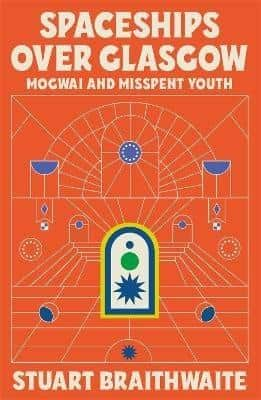Book review: Spaceships Over Glasgow: Mogwai and Misspent Youth by Stuart Braithwaite


Over the last quarter of a century, Mogwai have steadily grown into one of Scotland’s most feted bands, with a reputation as big as their often thunderous music. Among other things, according to this tell-some account, those years have been spent locking horns with concerned sound engineers.
Stuart Braithwaite is the band’s de facto frontman – singer of lyrics on the rare occasions when they produce a non-instrumental composition and, for a time in the early years of their career, when using the term “career” would have been laughed out their dressing room (if they even had a dressing room), their deliberately mouthy mouthpiece.
Advertisement
Hide AdSpaceships Over Glasgow is Braithwaite’s story, but the vast majority of that story is consumed with Mogwai. His book begins well with a straightforward yet arresting first line – “I wasn’t born into music” – and a tantalising few pages on his Franco-fighting grandfather and telescope maker father but, perhaps fittingly for someone so thoroughly wrapped up in music and what it means to him, the narrative quickly pivots to his adolescent exploits in sound and stimulants.


Braithwaite lays out a comfortingly unremarkable childhood – small town upbringing, tolerant parents, utter aversion to traditional education, autodidactic appreciation for music and alcohol, leading to what he describes as a “semi-feral” teenage existence.
There are a few anecdotal nuggets along the way. The first song he learned on acoustic guitar was The Velvet Underground’s Heroin, which proved a gateway drug to the music of the Jesus & Mary Chain and The Cure. But Braithwaite quickly gets lost in awestruck accounts of early gigs he attended which tend to blur into one. Blur, meanwhile, “are s***e” according to the juvenile but highly popular T-shirt which Mogwai produced for a T In The Park appearance.
Braithwaite was a verbal provocateur in his time but is now too self-aware and fair-minded to dish much dirt. As he discovered when he hitched a lift on Elastica’s tourbus, he and his band are relative part-timers when it comes to hedonism anyway (they once adopted a policy of being “tipsy for soundcheck”) and he is more likely to associate high living with low moods.
This is a neither a glamorous nor an indulgent account and, as such, probably closer to imparting what it is actually like being in a successful band – a life punctuated with great opportunities, moments of self-doubt, fraternal connections and the occasional dramatic spike. Braithwaite is not one for purple prose yet leaves the reader in no doubt as to how much music and Mogwai means to him before he comes full (stone) circle back to his dad and his key role in erecting the Sighthill standing stones. More of this might have broadened the appeal of the book beyond Mogwai’s ardent fanbase.
Spaceships Over Glasgow: Mogwai and Misspent Youth, by Stuart Braithwaite, White Rabbit, £20.